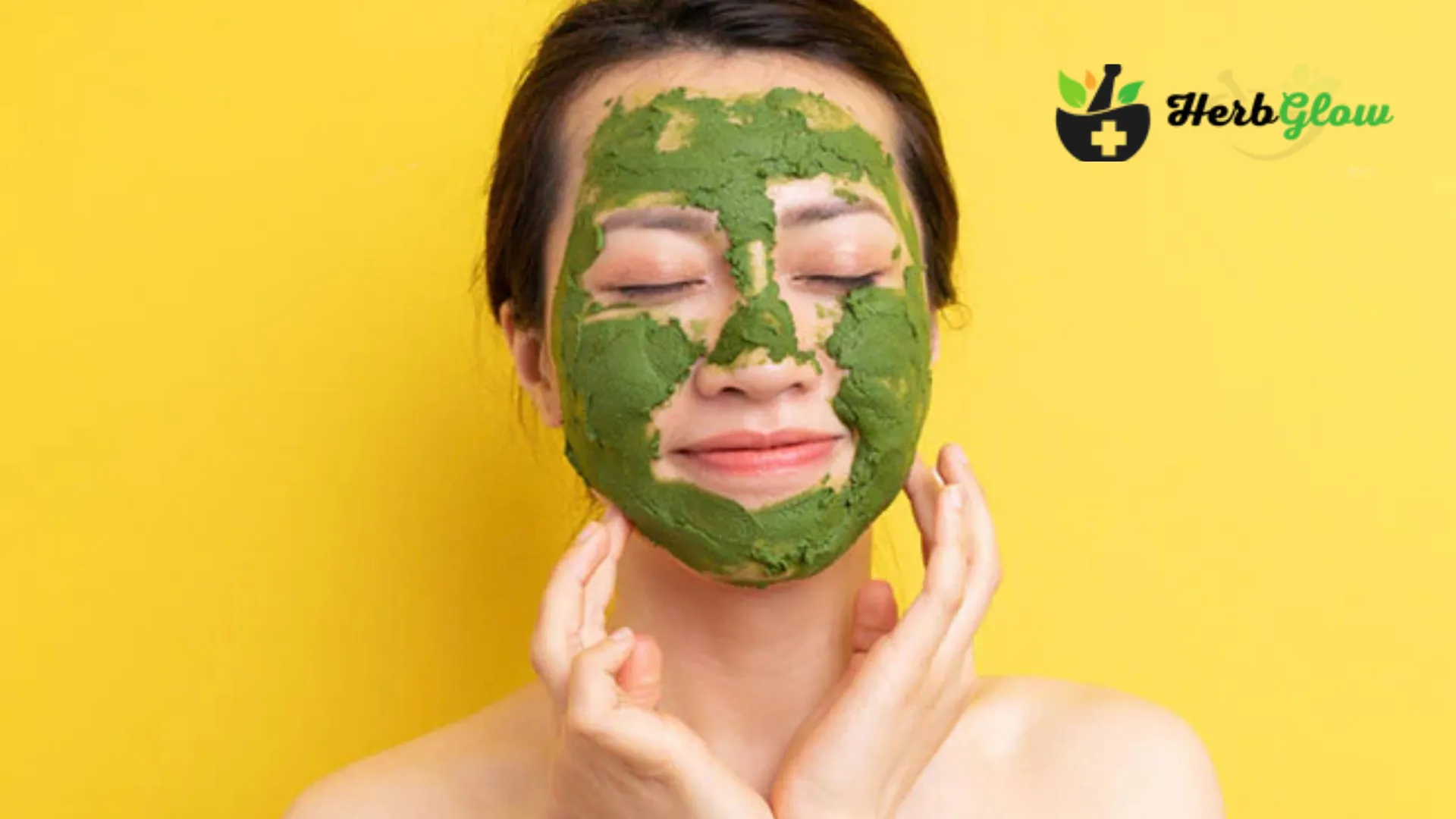10 Powerful Herbs for Skin Care and Optimal Skin Health in 2025
 |
| 10 Powerful Herbs for Skin Care and Optimal Skin Health in 2025 |
Skin care is no longer just a beauty ritual—it’s a crucial step to maintaining overall health and achieving a radiant and healthy glow. As we move forward into 2025, the demand for natural, safe, and effective solutions for skin health continues to grow. Herbs, with their centuries-old medicinal properties, remain at the forefront of herbal skincare, offering a plethora of benefits for various skin types and conditions.
In this article, we’ll explore 10 powerful herbs that can enhance your skin care routine and help you achieve healthy, glowing skin naturally.
10 Powerful Herbs for Skin Care and Optimal Skin Health in 2025
Best Herbs for Skin: The Foundation of Natural Skin Care
Using herbs in skin care is more than a trend—it’s a time-tested approach to achieving and maintaining healthy skin. Packed with antioxidants, anti-inflammatory properties, and essential vitamins, these herbs help protect your skin from damage, improve skin texture, and promote a healthy glow.
Here’s how 10 of the best herbs can transform your skin:
 |
| Chamomile: The Soothing Herb for Skin Health |
1. Chamomile: The Soothing Herb for Skin Health
Chamomile is one of the most popular and effective herbs for skin care, especially for sensitive and irritated skin. Known for its anti-inflammatory and antibacterial properties, chamomile helps calm the skin and provides relief from various conditions.
Skin Benefits of Chamomile:
- Reduces skin inflammation and irritation.
- Speeds up wound healing and minimizes scarring.
- Protects the skin from free radicals, helping prevent premature aging.
- Relieves symptoms of eczema, psoriasis, and other skin conditions.
Chamomile is often found in natural skincare products like creams, toners, and face masks, making it a must-have herb for a healthy skin care routine.
 |
| Aloe Vera: The Ultimate Hydration Herb |
2. Aloe Vera: The Ultimate Hydration Herb
Aloe vera is a powerhouse of hydration. Its gel-like inner leaf contains essential nutrients that deeply moisturize the skin and repair damaged skin cells.
Skin Benefits of Aloe Vera:
- Soothes dry and irritated skin.
- Treats sunburn and reduces redness.
- Promotes the production of collagen, improving skin elasticity.
- Brightens the skin and reduces dark spots.
This herb is suitable for all skin types, making it a versatile addition to your skincare routine.
 |
| Green Tea: The Antioxidant-Rich Herb |
3. Green Tea: The Antioxidant-Rich Herb
Green tea is packed with antioxidants, particularly catechins, which protect the skin from free radicals and reduce the risk of skin damage.
Skin Benefits of Green Tea:
- Combats premature aging by reducing fine lines and wrinkles.
- Improves skin elasticity and firmness.
- Controls excessive oil production, making it ideal for oily and acne-prone skin.
- Soothes irritated or inflamed skin.
Green tea-based skincare products have gained immense popularity for their ability to keep your skin looking youthful and fresh.
.png) |
| Turmeric: The Glow-Enhancing Herb |
4. Turmeric: The Glow-Enhancing Herb
Turmeric is a golden herb renowned for its anti-inflammatory and antioxidant properties. Its active compound, curcumin, helps improve the overall appearance of the skin.
Skin Benefits of Turmeric:
- Lightens dark spots and hyperpigmentation.
- Treats acne and reduces redness.
- Promotes a healthy glow by improving skin tone.
- Protects the skin from environmental damage and oxidative stress.
Incorporating turmeric into your skincare routine, whether through masks or serums, can give your skin a natural, radiant glow.
 |
| Lavender: The Herb of Balance and Relaxation |
5. Lavender: The Herb of Balance and Relaxation
Lavender is not only a calming herb for the mind but also a powerful ally for the skin. Its soothing properties make it ideal for sensitive or irritated skin.
Skin Benefits of Lavender:
- Calms redness and inflammation.
- Speeds up the healing of cuts, burns, and acne scars.
- Balances oil production, making it suitable for both oily and dry skin types.
- Improves overall skin texture and appearance.
Lavender essential oil is a common ingredient in skincare products, thanks to its ability to promote skin health and relaxation.
 |
| Calendula: The Herb for Sensitive Skin |
6. Calendula: The Herb for Sensitive Skin
Calendula, or marigold, is known for its soothing skin benefits. It’s especially beneficial for those with sensitive or inflamed skin.
Skin Benefits of Calendula:
- Reduces skin irritation and redness.
- Promotes wound healing and soothes dry, cracked skin.
- Protects the skin barrier, keeping it hydrated and healthy.
- Fights off infections with its antibacterial and antifungal properties.
Calendula is often used in creams, balms, and oils, making it an excellent addition for people with sensitive skin or common skin conditions like eczema.
 |
| Peppermint: The Cooling and Refreshing Herb |
7. Peppermint: The Cooling and Refreshing Herb
Peppermint is a herb with natural cooling properties, perfect for irritated or inflamed skin. Its menthol content provides a refreshing sensation, leaving the skin feeling rejuvenated.
Skin Benefits of Peppermint:
- Reduces redness and soothes irritated skin.
- Helps control excess oil production, making it great for oily skin.
- Improves circulation, giving your skin a healthy, vibrant glow.
- Fights acne with its antibacterial properties.
Peppermint can be used in face masks, toners, or even as an infused water spray for an instant refresh.
.png) |
| Thyme: The Antibacterial Powerhouse |
8. Thyme: The Antibacterial Powerhouse
Thyme is a medicinal herb that’s packed with antibacterial and anti-inflammatory properties, making it a natural remedy for acne and other skin infections.
Skin Benefits of Thyme:
- Fights bacteria that cause acne and clogged pores.
- Soothes inflamed and irritated skin.
- Protects the skin from environmental pollutants.
- Helps maintain a clear, healthy complexion.
Thyme extract is often found in cleansers, spot treatments, and toners for acne-prone skin.
.png) |
| Rosemary: The Anti-Aging Herb |
9. Rosemary: The Anti-Aging Herb
Rosemary is a powerful herb that helps to delay the signs of aging and improve overall skin health. Its antioxidants protect the skin from free radical damage, which can lead to premature aging.
Skin Benefits of Rosemary:
- Reduces the appearance of fine lines and wrinkles.
- Improves blood circulation, leading to a brighter complexion.
- Tightens the skin and enhances elasticity.
- Protects the skin from environmental stressors.
Incorporating rosemary oil or extract into your skincare routine can help keep your skin youthful and firm.
 |
| Gotu Kola: The Herb for Skin Repair and Renewal |
10. Gotu Kola: The Herb for Skin Repair and Renewal
Gotu Kola, also known as Centella Asiatica, is a herb famous for its healing benefits. It’s widely used in modern skincare for its ability to repair damaged skin and promote collagen production.
Skin Benefits of Gotu Kola:
- Stimulates collagen synthesis, improving skin elasticity.
- Speeds up the healing of wounds, scars, and burns.
- Reduces the appearance of stretch marks and fine lines.
- Strengthens the skin barrier, protecting it from external damage.
Gotu Kola is a key ingredient in many anti-aging and skin-repair products.
Why Herbs Are Essential for Skin Care in 2025
As consumers increasingly turn to natural ingredients for their skincare routines, the importance of herbs cannot be overstated. These herbs not only address specific skin concerns like acne, dryness, and aging but also enhance overall skin health by promoting hydration, reducing inflammation, and protecting against environmental damage.
FAQs About Herbs for Skin Care
1. Are herbs safe for all skin types?
Most herbs are gentle and suitable for all skin types. However, it’s recommended to do a patch test before trying any new herb-based product, especially if you have sensitive or allergic skin.
2. Can herbs help with skin aging?
Yes, many herbs like green tea, rosemary, and gotu kola have anti-aging benefits. They promote collagen production, protect against free radicals, and improve skin elasticity.
3. How can I incorporate herbs into my skincare routine?
Herbs can be used in various forms, such as essential oils, herbal teas, face masks, or added to skincare products like creams and serums.
4. Are there any side effects of using herbal skincare?
While herbs are generally safe, overuse or improper application can cause irritation. Always follow product instructions and consult a dermatologist if you’re unsure.
Conclusion
Herbs have been trusted for centuries for their medicinal and skincare benefits, and in 2025, their relevance continues to grow. By incorporating these 10 powerful herbs—like chamomile, aloe vera, turmeric, and gotu your skin care routine, you can achieve healthier, more radiant, and youthful skin in a natural way. Whether you're dealing with common skin conditions like acne, dryness, or inflammation, or simply looking to maintain a healthy glow, these herbs offer a safe and effective solution.
As the demand for natural ingredients in skincare continues to rise, these herbs stand out for their ability to protect, heal, and rejuvenate the skin without harsh chemicals. By understanding the potential skin benefits of these herbs, you can tailor your routine to address your unique skin type and concerns, ensuring your skin looks and feels its best.
Incorporate these herbs into your daily routine, whether through herbal skincare products, DIY treatments, or even herbal teas, and watch as your skin transforms with their powerful, natural properties.
Sources :
Scientific Studies on the Benefits of Herbs for Skin Care:
- The use of herbs like chamomile and aloe vera in natural skincare products has been documented in numerous scientific studies.
- Example study: Chamomile: A Herbal Medicine of the Past with a Bright Future (Published in NCBI).
Trusted Medical and Health Articles:
- Websites like Mayo Clinic and WebMD offer articles about the benefits of herbs like aloe vera, chamomile, and peppermint for skincare.
- WebMD - Aloe Vera for Skin.
Scientific and Medical Books:
- Many books explore the medicinal properties of herbs and their effects on the skin. For instance, "Herbal Medicine: Biomolecular and Clinical Aspects" discusses the therapeutic properties of various herbs.
Herbal Skincare-Focused Websites:
- Websites such as Healthline and Dr. Axe provide reliable information on herbs and their benefits for the skin.
Historical References on Herb Usage:
- Herbs like turmeric and thyme have documented traditional uses in Ayurvedic and Chinese medicine. Books like "Encyclopedia of Herbal Medicine" provide historical and medical information.
Research on Essential Oils:
- Essential oils extracted from plants like lavender and rosemary have numerous studies proving their skincare benefits.
- PubMed - Lavender Oil for Skin Health - Reliable studies available on PubMed.

.png)
.png)
.png)
.png)
.png)
.png)
.png)
.png)
.png)
.png)
.png)
.png)



